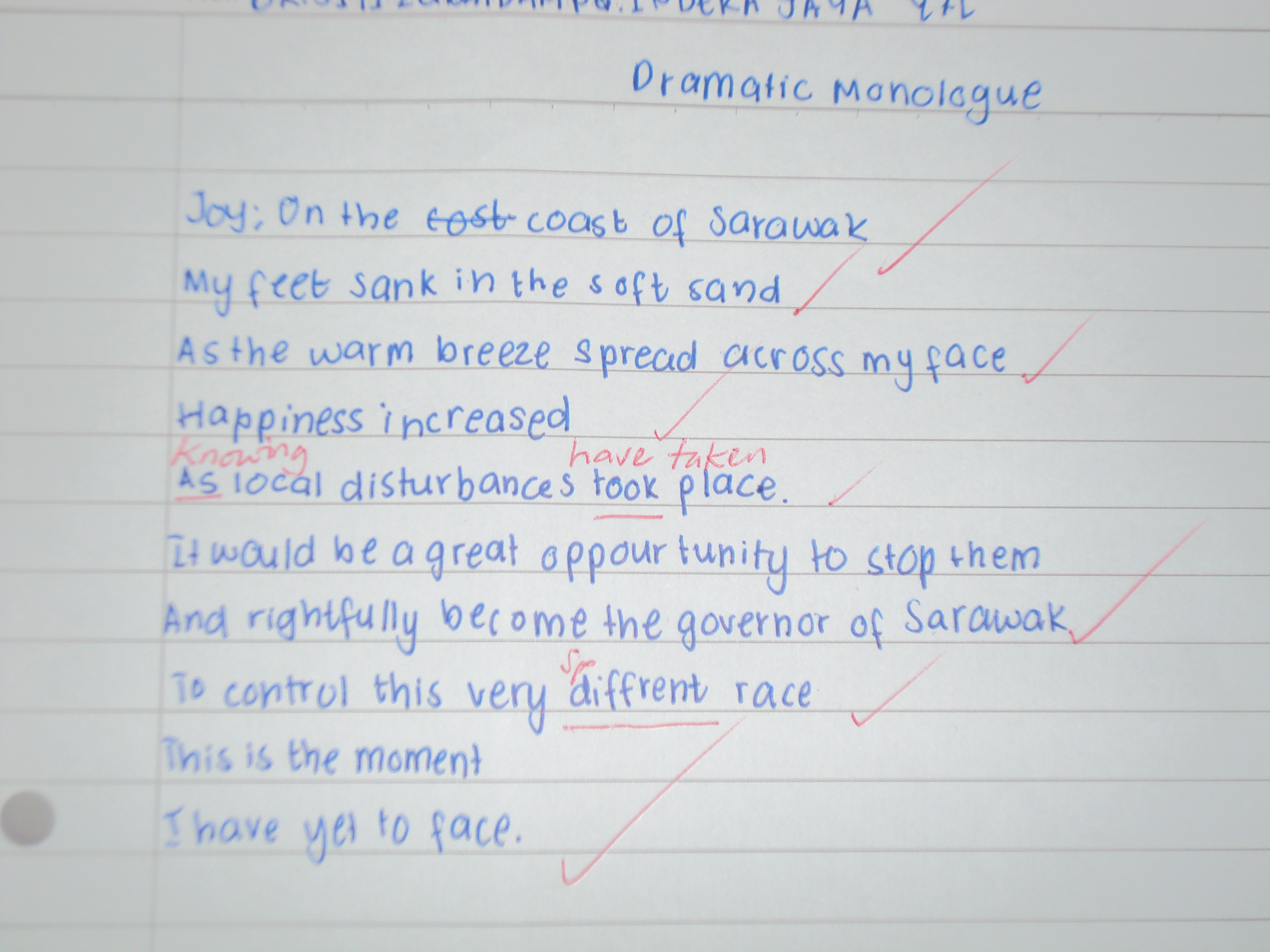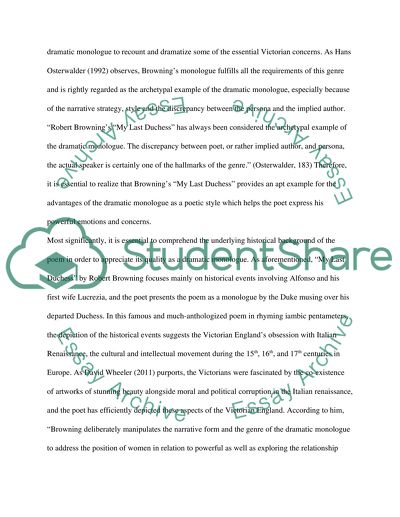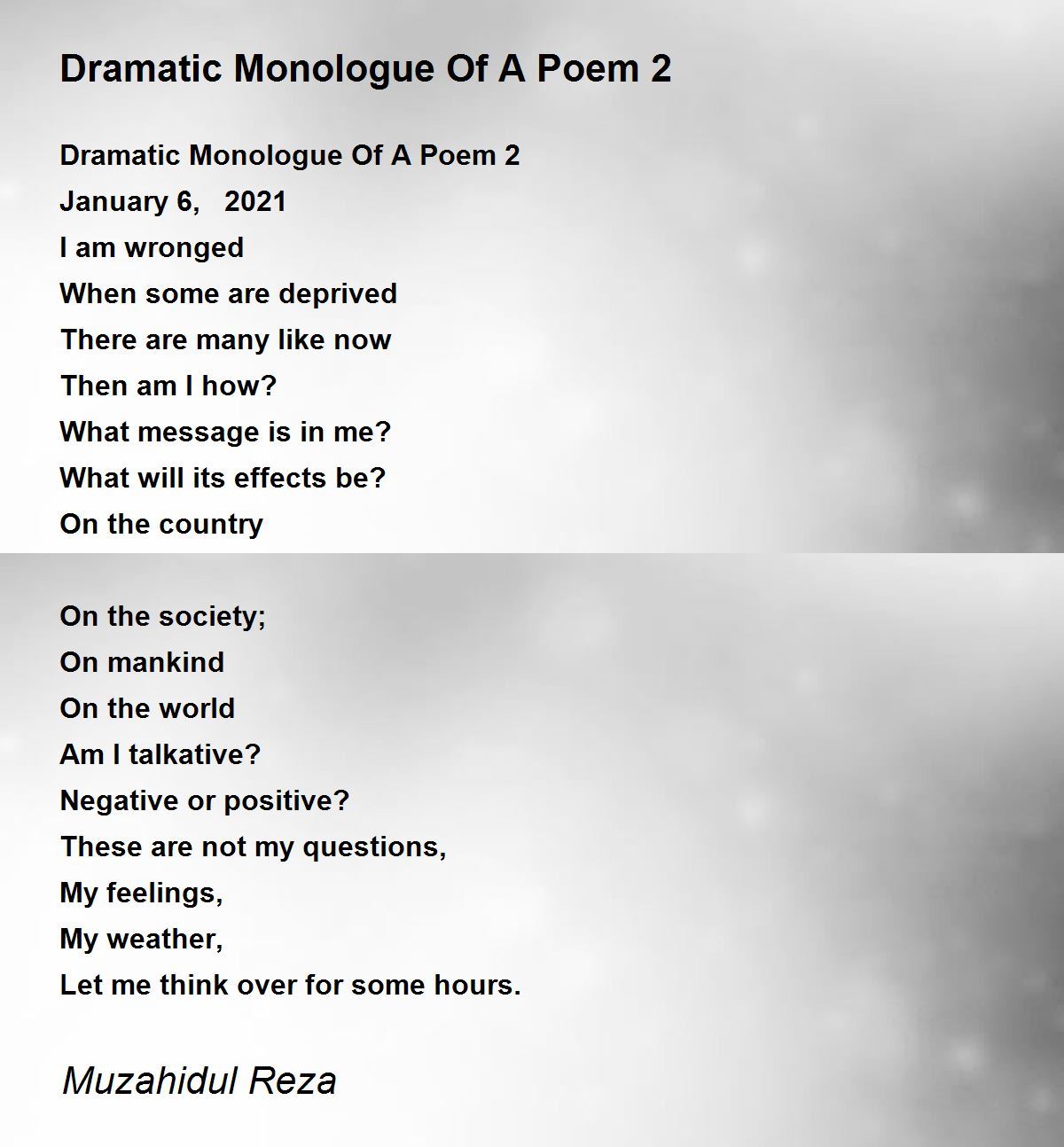A dramatic monologue is a type of poetry in which a character speaks to an audience or another character, revealing their thoughts, feelings, and motivations through their words and actions. The monologue serves to provide insight into the character's inner life and reveal the character's personality, emotions, and relationships.
One classic example of a dramatic monologue is "My Last Duchess," a poem written by Robert Browning. In this poem, the speaker is the Duke of Ferrara, who is showing a portrait of his late wife, the Duchess, to an emissary of another nobleman. As the Duke speaks, he reveals his own character as well as the complex and tumultuous relationship he had with his wife.
The Duke begins by discussing the portrait of his wife, praising her beauty and grace. However, as he continues to speak, it becomes clear that he was not happy with his wife's behavior. He implies that she was too friendly and engaging with others, and he seems to have felt that she was not showing him the respect and deference that he felt he deserved.
"My Last Duchess" is a powerful example of a dramatic monologue because it allows the reader to see the Duke's character from the inside out. Through his words and actions, we see that he is controlling, possessive, and prone to jealousy. We also see that he is a man who is used to getting what he wants and is not willing to compromise.
Another notable example of a dramatic monologue is "The Love Song of J. Alfred Prufrock," a poem written by T.S. Eliot. In this poem, the speaker is J. Alfred Prufrock, a man who is struggling with feelings of inadequacy and insecurity. He speaks to an unknown listener, expressing his doubts and fears about love and relationships.
Through Prufrock's words, we see that he is a man who is deeply self-conscious and unsure of himself. He feels that he is not good enough for the woman he desires, and he is afraid of rejection and failure. Despite his feelings of inadequacy, however, Prufrock is also a deeply romantic and passionate person, as evidenced by his longing for connection and intimacy.
Overall, dramatic monologues are a powerful tool for revealing character and exploring the inner lives of fictional characters. Through the use of language, imagery, and rhetorical devices, poets can create rich and nuanced characters that feel like real people. Whether it's the Duke of Ferrara or J. Alfred Prufrock, dramatic monologues allow readers to see the world through the eyes of complex and fascinating characters, providing insight into their motivations, desires, and fears.






